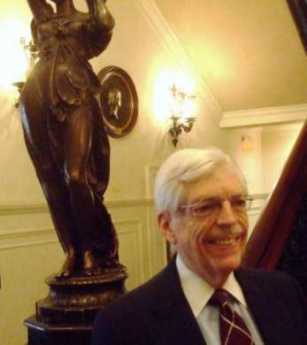Related Topics
The Park and Beyond: East Falls, Germantown, Mt. Airy and Chestnut Hill
Fairmount Park is large enough to split the City from its suburbs, and is partly a playground, partly a museum. East Falls, Germantown and Chestnut Hill are almost a separate world on the far side of the park.
Musical Philadelphia
Quakers never cared much for music, but the city has nonetheless musically flourished into international fame. At the same time, quarrels and internal battles have also been world class.
Theatre in Philadelphia
Theater has declined, everywhere in the western world. But in Philadelphia, even today if you attended every new play you would keep pretty busy.
Philadelphia Legal Scene
The American legal profession grew up in this town, creating institutions and traditions that set the style for everyone else. Boston, New York and Washington have lots of influential lawyers, but Philadelphia shapes the legal profession.
The Main Line
Like all cities, Philadelphia is filling in and choking up with subdivisions and development, in all directions from the center. The last place to fill up is the Welsh Barony, a tip of which can be said to extend all the way in town to the Art Museum.
Cultural
Culture and Traditions (2)
Right Angle Club 2008
A report, to the year 2008 shareholders of the Right Angle Club of Philadelphia, by the outgoing president, Neale Bringhurst...
City Hall to Chestnut Hill
There are lots of ways to go from City Hall to Chestnut Hill, including the train from Suburban Station, or from 11th and Market. This tour imagines your driving your car out the Ben Franklin Parkway to Kelly Drive, and then up the Wissahickon.
The Man Behind the Mann

|
| William Leonard |
William Leonard, a distinguished lawyer retired from the distinguished firm of Schnader, Harrison Segal and Lewis addressed the Right Angle Club recently about his adventures running the new and improved Mann Center in Fairmount Park. A member of the board, he was suddenly asked to act as interim CEO when Peter Lane went on to another career. His task was to hold the organization together, while a permanent replacement was recruited. It turned out that directing an organization and actually running it are two entirely different things. It was necessary to learn about show business programming, the problems of rock groups, the whims of donors, the headaches associated with food vendors, and lease renewals with city governments, not to mention the rigidities of state and federal rules. Leonard obviously enjoyed the challenge, although most of us wouldn't.
The Philadelphia Orchestra had been playing summer concerts in the park since 1930, eventually adopting the name of Robin Hood Dell, East. Although the city contributed a couple hundred thousand dollars of support, and several hundred thousand other dollars came from non-ticket sales, classical music was always a long way from breaking even. The big revenue came from Rock Concerts, which may have been humiliating for the classical musicians of international fame, but was nevertheless what it took to survive, take it or leave it. Fred Mann in 1976 took the lead in raising funds for a roofed outdoor performance center, and the enormous energy of Peter Lane was brought from the New York Pops to get things going. In ten years, the Mann Center increased its outside support to $2.8 million of the $8 million annual budget and was putting on forty performances a season, with attendance increasing by 20% from 2006 to 2007. All this was accomplished in spite of the city government dropping its contribution to zero, and dropping music courses in the school system.
In a sense, the city stringencies may have been a blessing for the Mann. A second capital campaign raised $15 million for expanded facilities and parking, as well as an education center, to meet the new community need. A complimentary ticket program distributes 50,000 free tickets yearly, and seats on the lawn cost $10. If you want to get under the roof, it costs more. The free program familiarized parents with the program, and the educational center is now thriving.
Mr. Leonard brought along the new CEO, Cathy Cahill, and it looks as though he made a good choice. She's only been here for 19 days, but she went to Temple and Drexel before taking jobs out of town. She's a cellist herself, which should ease labor relations somewhat, although the pep and enthusiasm are surely innate. We hear that SEPTA is planning to re-open the R-5 station, and jitney bus service for the whole Park complex will be shared with the Please Touch Museum and other new activities in the 1876 exhibition area. There are plans for a Shakespeare repertory group to have a home here. This drive and enthusiasm are going to be necessary because Rock Groups are now competing in the Wachovia Center, and the Tweeter Center in Camden. Apparently, the secret of classical music finances leaked out.
www.Philadelphia-Reflections.com/blog/1479.htm
Originally published: Friday, June 27, 2008; most-recently modified: Wednesday, August 07, 2019